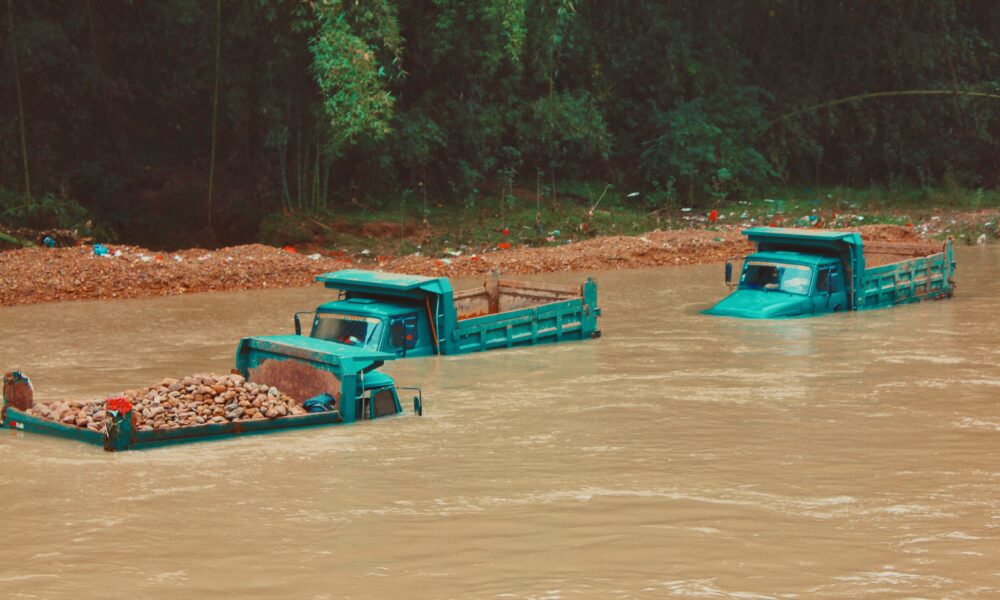Roughly 600 deaths, over 1.3 Million people displaced, 33 out of 36 states affected and on it goes. These are not just numbers or data points in a graph, they are real people: a father, mother, sister, brother, friend, niece, a lover. It could also have been you, reader.
Over the last couple of weeks, Nigeria has experienced its worst floods in over a decade. These ‘never-before-seen’ flood levels in recent weeks have claimed lives, properties, livelihoods, and much more.
According to multiple sources, heavy rains, poor drainage infrastructure and an overflowing dam in Cameroon have been blamed for the floods, however, better infrastructure could have softened the blow dealt by these factors. But that’s not today’s story, instead, let us explore the impact of these floods.
On the Poor
While both the poor and the rich were affected by the floods, we can doubtlessly agree that the poor would be most hit by this for many reasons.
By the poor, we mean people who live on less than $1 (439 Naira) a day. Such people have fewer savings to help deal with such shocks, less access to insurance (for both health and property), and less access credit facilities to enable them restart lost businesses and pick up their lives.
On the Disabled
Another group of people who would be disproportionately impacted by the floods would be people living with disabilities. While we may not be able to currently estimate the impact of these floods on people living with disabilities, an article by The Conversation shows that due to their condition(s), they are more likely to:
- Be more displaced by floods.
- Experience post-traumatic stress disorder due to the floods even after 6 months.
- Experience disrupted access to food, support networks and essentials such as healthcare
People living with disabilities are also more at risk of ultimately losing their lives in occurrences like floods.
On Education
When floods occur, students are forced to halt their education. This leads to lost academic time and is detrimental to people affected by the floods at both the national and international levels.
Learning materials would have also been destroyed by the floods, further making learning difficult. The financial losses experienced by families could ultimately make it impossible for some children to go back to school.
On the Economy
In areas affected by the floods, economic activities became almost halted as products of business owners have been lost in the flood, in farming areas, crops and animals have been completely/partially lost and destroyed. Currently, about 70,566 hectares of farmland have been damaged.
Properties like vehicles or machinery which may have been means of livelihood were lost or spoilt due to the floods. In these areas, the cost of living also exploded dramatically driving people into a deeper poverty trap and making the economy of such communities worse.
On Health
Floods pose a huge risk to health. From deaths to transmitting communicable diseases, becoming a breeding zone for bacteria/viruses, and lots more, children, the elderly, pregnant women and people already living with medical conditions are posed to be more at risk during these times.
Floods also affect the mental health of people in affected communities and this could further lead to depression or high suicide rates in such communities.
What Next?
The floods are receding and life is getting back to normal, but the impact of these floods will stay with us. Our action today is what would determine the severity of this aftermath and potentially affect the lives of thousands of Nigerians affected by the floods.
Donate
Whether monetarily or through relief materials, your giving is important and would make a lot of difference. You could give through NGOs that are actively working with people affected by the floods.
Reach the Unreached
While efforts are being made to help people and communities affected by the floods, there could also be people not being reached, find them and reach them.
Other aspects of living like mental health awareness, therapy, business coaching, free virtual learning interventions, housing interventions and lots more would be helpful.
Raise Awareness for Climate Action
The need for climate awareness is more than urgent. Every little action towards climate resilience counts. Reduce your carbon footprint, reduce your plastic usage, waste less water, use more biodegradable items, spread the word and stir community action.
***
Featured images: Jéan Béller for Unsplash
Adaugo Nwankpa is a statistician and a data & brand storyteller with an interest in economic and community development. She is a TEDx organizer and currently works as a business development associate at BellaNaija.
Share your story or advertise with us: Whatsapp: +2347068606071 Email: info@newspotng.com















